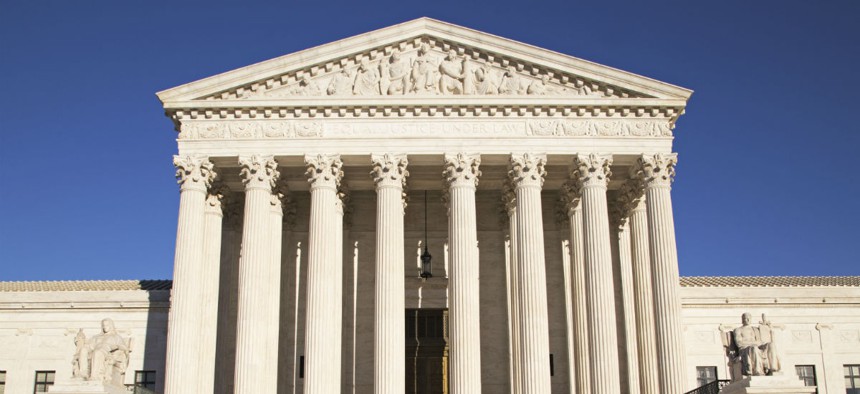Supreme Court Rules on Civil Service Law
Court decides in favor of employee, against government.
The Supreme Court on Friday ruled against the government and in favor of a former Census Bureau employee, finding certain federal workers who appeal adverse actions on the basis of both civil service and antidiscrimination violations should file their cases in district court.
In a 7-2 opinion, the court ruled in Perry v. Merit Systems Protection Board that federal employees in such “mixed cases” should not have to file their appeals in two separate courts, as the government had argued. Federal employees generally appeal civil service cases to the MSPB and antidiscrimination cases to the Equal Employment Opportunity Commission. If those cases continue to higher courts, they go on to federal appeals court and district court, respectively.
Anthony Perry appealed his termination from Census and subsequent settlement agreement by alleging discrimination based on race, age and disability. MSPB initially ruled it did not have jurisdiction over the case because, after Perry’s settlement, he voluntarily retired from the agency. Perry attempted to petition MSPB’s decision to the D.C. Circuit, despite the board telling him to file the case in the Federal Circuit. A disagreement then ensued about which court had jurisdiction over the case.
The government argued Perry should take up his claims related to the 1978 Civil Service Reform Act to the Federal Circuit, and the EEOC claims separately in federal district court. The Supreme Court, however, in an opinion written by Associate Justice Ruth Bader Ginsburg, said that would be unnecessarily burdensome.
“Review rights should be read not to protract proceedings, increase costs and stymie employees,” Ginsburg wrote, citing precedent, “but to secure expeditious resolution of the claims employees present.”
The upshot of the decision is that when employees filing mixed cases want to appeal them after the MSPB rules it does not have jurisdiction, they should file them in district court. The court found the government’s argument that the cases should be separated into two separate courts because that would be the only way to ensure they were heard uniformly across the country was unconvincing.
“Desirable as national uniformity may be, it should not override the expense, delay and inconvenience of requiring employees to sever inextricably related claims, resorting to two discrete appellate forums, in order to safeguard their rights,” Ginsburg wrote.
During the oral arguments for the case, the justices decried the convoluted nature of both the case and civil service laws in general.
“Nobody who is not a lawyer,” said Associate Justice Samuel Alito, “and no ordinary lawyer could read these statutes and figure out what they are supposed to do."








